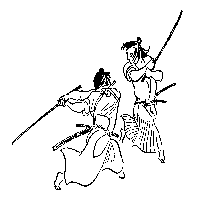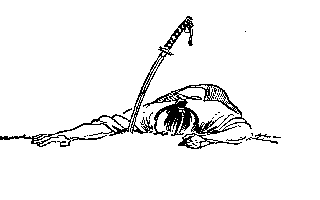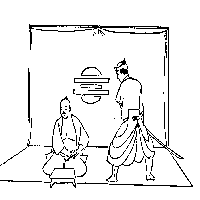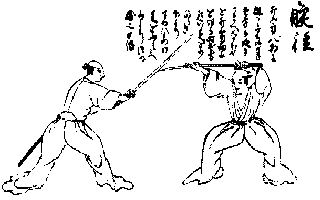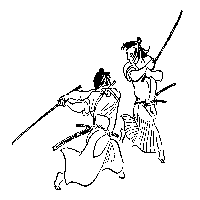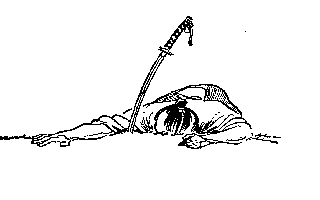
" Furthermore, during the last thirty years customs have changed; now when young samurai get together, if there is not just talk about money matters, loss and gain, secrets, clothing styles or matters of sex, there is no reason to gather together at all. Customs are going to pieces. One can say that formerly when a man reached the age of twenty or thirty, he did not carry despicable things in his heart, and thus neither did such words appear. If an elder unwittingly said something of that sort, he thought of it as a sort of injury. This new custom probably appears because people attach importance to being beautiful before society and to household finances. What things a person should be able to accomplish if he had no haughtiness concerning his place in society !
It is a wretched thing that the young men of today are so contriving and so proud of their material possessions . Men with contriving hearts are lucking in duty. Lacking in duty, they will have no self-respect."
( pág. 34 do "Hagakure - The Book of the Samurai " de Yamamoto Tsunetomo, 1658 - 1719 )

